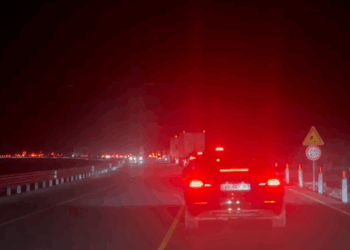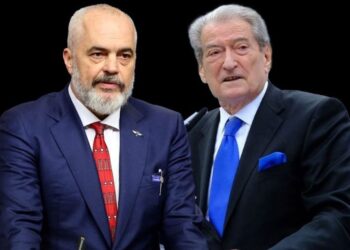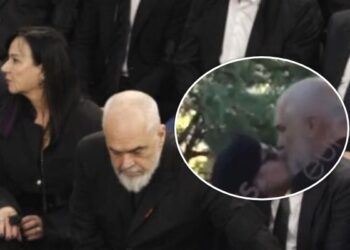A rejection by the Supreme Court of Israel for the declassification of the required documentation regarding the Israeli government’s alleged accusation of the Rwanda regime in 1994 exposes Albania.
Supreme Court President Miriam Naor, Judge Neal Hendel and Yitzchak Amit, while acknowledging that the public had the deities to recognize the facts of the situation, decided that declassification would be detrimental to Israel’s foreign relations. Human Rights Advocate Eitay Mack and YairAuron, an Israeli historian at Israel’s “Open” University, filed a “FOI” request to the Israeli Defense Department in 2014. The original claim was rejected by a court in Tel Aviv, however Mack appealed the decision until the case was over at the High Court. “In public, it has been of great interest for these information to be disclosed, and the prevention of their disclosure gives the impression that the defendants do it because of vain considerations,” Mack said.
In their decision, Supreme Court judges based on Article 9 of the Freedom of Information Act that allows the government to retain classified documents if “the information provided may undermine national security, foreign affairs, security of the people, and security or well-being of an individual “. Mack described the Court’s decision as “wrong and immoral”. “The state of Israel only loses this,” he said. Mack acknowledged that the judges recognized the genocide of Rwanda in 1994, which previous courts refusing the request did not. Nearly 1 million Rwandan, Tutsi and moderate Hutu were massacred from the beginning of April to mid-July 1994, about one-fifth of the country’s population after the double presidential killings on April 6th.
It has long been understood that Israel has given Rwanda conventional weapons, including rifles, ammunition and grenades, despite the fact that at that time a UN embargo was in effect.
YairAuron 12 years ago called for the sale of weapons from Israel to Rwanda in April 1994. Auron, according to the Middle East Eye, has spent more than two decades research on Israel’s attitudes towards genocide other peoples. When he raised the issue of Israel’s involvement in Rwanda in 2004, he said there were photographs and documents showing that Israeli arms dealers had supplied Rwandan forces with cartridges, rifles and grenades taken from Egypt during the Arab-Israeli war in 1973 Israel has denied claims.
Last week, Auron told a tribunal in Tel Aviv district: “Sending a gun to a country where it is being carried out in genocide is the same as sending a gun to Nazi Germany during World War II. We gave weapons to Serbia during the embargo and gave weapons to Rwanda’s government, which has committed murder. ”
Michal Zak of “Middle East Eye” talked with Professor Auron about his investigation and the reaction of Israeli authorities.
When did you discover that Israel sold arms to Rwanda during the genocide of 1994?
I heard it for the first time by an Israeli photographer. He has been in Rwanda eight times and has seen the weapons. When I asked if the senior executives were involved in the arms deal, he said yes. When I told him that it meant [Yitzhak] Rabbi and [Shimon] Peres, he said to me, “You are saying this, not me. And if you publish it somewhere, I will say that I do not know you. ” I began to look for more evidence. In our request, we rely on, among other sources, in an Amnesty International report published in 1995. The report details the weapons that were loaded at Ben Gurion Airport (Israel). The list included small arms that Israel confiscated in the Arab-Israeli war in 1973, as did the Soviet and Chinese arms that were loaded in Tirana, Albania. Weapons were charged in Israel and Albania under the supervision of Israeli officers. Later, when Advocate Mack and I prepared the petition, we faced additional information that verified our suspicions.
In your knowledge, did the Israeli government know that it was selling weapons that could be used in genocide?
There have been tensions in Rwanda since January 1994. Some of the world’s most powerful states imposed international arms control rules and on May 17, 1994, there was a UN embargo. Israel has violated the embargo, just like Russia, Belgium, South Africa, France, Spain and others. Many of the aircraft carrying the shipments were British. The latest arms export license was issued by the Israeli Defense Ministry in October 1993, about a year and a half before the massacres began. But some shipments were sent between May and July (during the massacres). According to the documents of the Rwanda Ministry of Defense, seven light ammunition shipments came from Israel through Albania between April and July 1994 for the militias who carried out the massacres. I must add that the Israelis were the first to set up a military hospital in Rwanda in July 1994. Medical staff did an extraordinary job. But while the government was responsible for this great humanitarian act, it was also responsible for supplying weapons to Hutu government forces.
What do you think would happen if you were to publish Israel’s involvement in genocide?
I gave an interview for Israel TV in 2004 on the tenth anniversary of Rwanda’s genocide. The show’s leader introduced the case using the Holocaust terminology, which is rarely used in Israel. He said that when the genocide in Rwanda developed “the world was silent”. I added that Israel was part of the world that was silent, and even that there are claims that we have given a piece of weapons. I ended the interview saying that if the allegations are true, these are genocide crimes. I was sure that as soon as I came home I would be bombarded by phones and messages from political figures and others who might be worried, angry, or skeptical about this revelation. But there was silence, no one reacted. I was confronted with this kind of denial again by more accountable people, like academics, politicians and friends who said to me: “It has not been possible to have had weapons sales”. Or, they told me I had gone too far accusing Rabin and Peres.
What is your motivation, what do you hope to achieve with this?
We want to expose sources that are related to sales because the sale of weapons during an embargo constitutes a crime against humanity. If the International Criminal Court had done its job, it would have been possible to judge Israel, France and others. We have chosen to address the Israeli court using the Law on Freedom of the Information Right, giving each Israeli citizen the right to receive information from a public authority. Our motivation is moral. These actions are against international law and it is important to show what has happened. We are not so naive as to believe that we can completely stop the sale of weapons. Prosecutor Mack is determined to increase transparency and public oversight over the sale of weapons. He adds that if we will want to prevent these bad things in the future, we will have to point out and face the dark chapters of our past. Its purpose is to ensure that the law on arms sales oversight is implemented. The law prohibits the sale of weapons to countries with an arms embargo. In addition, he is defending a new law that will stop Israel from selling weapons to countries reporting massive human rights violations.















